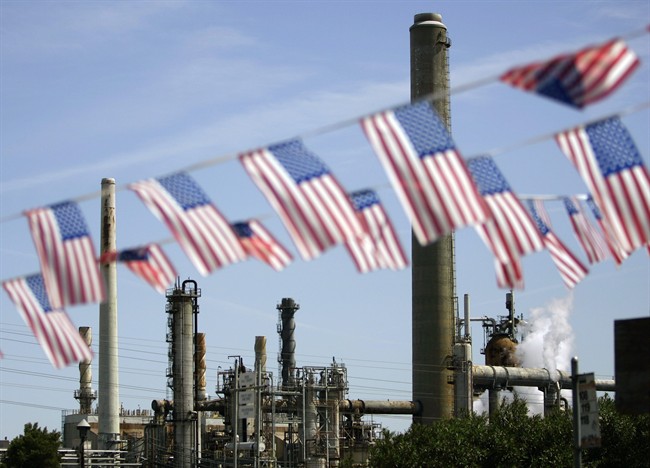LOS ANGELES – Gov. Jerry Brown is set to extend the nation’s most ambitious climate change law by another 10 years on Thursday as California charts a new goal to reduce carbon pollution.

The Democratic governor chose an urban natural park on the edge of downtown Los Angeles as the setting to sign the legislation, SB32, into law.
The bill expands on California’s landmark 2006 law, which set the goal of reducing greenhouse-gas emissions to 1990 levels by 2020. The state is set to meet or exceed that benchmark, Brown said, with steps including restricting the carbon content of gasoline and diesel fuel, encouraging sales of zero-emission vehicles and imposing a tax on pollution.
The new measure by Sen. Fran Pavley, D-Agoura Hills, sets a new goal of reducing emissions 40 per cent below 1990 levels by 2030, which Brown called the most aggressive target enacted by any government in North America.
He says the ultimate goal is to cut climate-warming pollution by 80 per cent under 1990 levels by 2050, though legislation that would have enacted that target was watered down.
MORE: Canada ‘missed the boat’ on climate-change economy
Supporters overcame strong opposition from oil companies and other industry interests to pass the bill a year after business-friendly Democrats in the Assembly derailed an even more ambitious proposal to limit the use of oil in the state. Republicans say California’s efforts have raised consumer costs without noticeably affecting global emissions.
Brown told a gathering a day earlier in Sacramento that critics have long tried to scuttle reforms by saying they aren’t feasible.
“It wasn’t too many years ago that our electric utilities said they could not get to 20 per cent renewable electricity,” Brown told a meeting hosted by the California Independent System Operator, which oversees the state’s power grid. “Well, this month it’s been over 26 per cent. They said they couldn’t get there by 2020. Now, they’re all saying — all the major privately owned utilities — they can get to 50 per cent by 2030.”
MORE: How climate change will affect Canadians
Brown also plans to sign another bill, AB197, by Assemblyman Eduardo Garcia, D-Coachella, that provides more legislative oversight of the appointed Air Resources Board, which is responsible for implementing the law, and gives aid to poorer areas that lawmakers say have suffered the most harm from climate change.
The governor, who has travelled the world promoting greenhouse-gas reduction efforts, issued an executive order last year setting the 2030 goals contained in SB32.
But his signing leaves in jeopardy the state’s best-known emissions reduction measure. The California Chamber of Commerce has a pending legal challenge to the tax on carbon known as cap-and-trade, which requires polluters to buy permits to emit greenhouse gases. The last two permit sales also have fizzled.
The chamber warned that SB32 will require severe new restrictions that could make the state’s energy supply less affordable.
___
Associated Press writers Don Thompson and Juliet Williams in Sacramento contributed to this report.



Comments